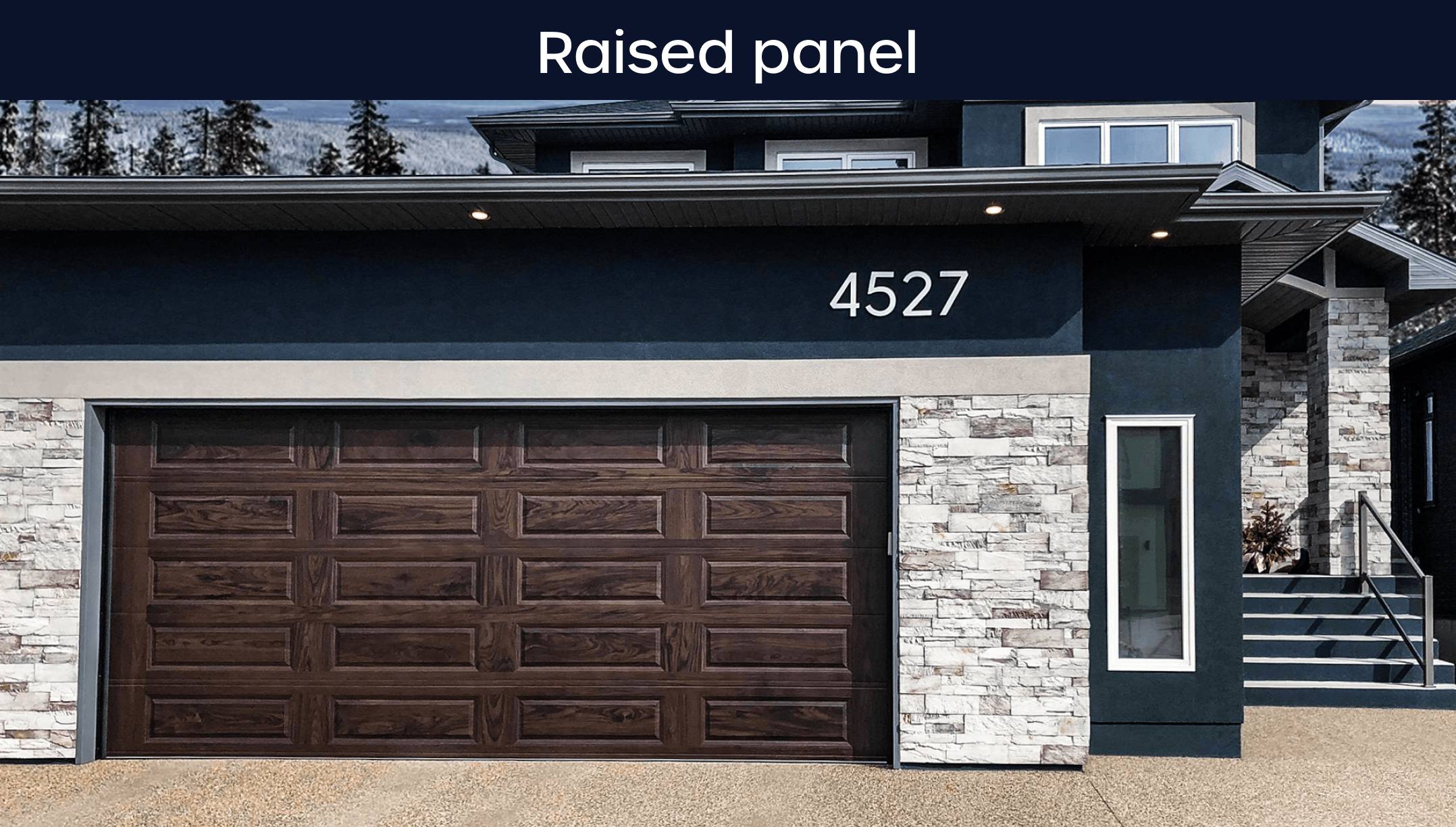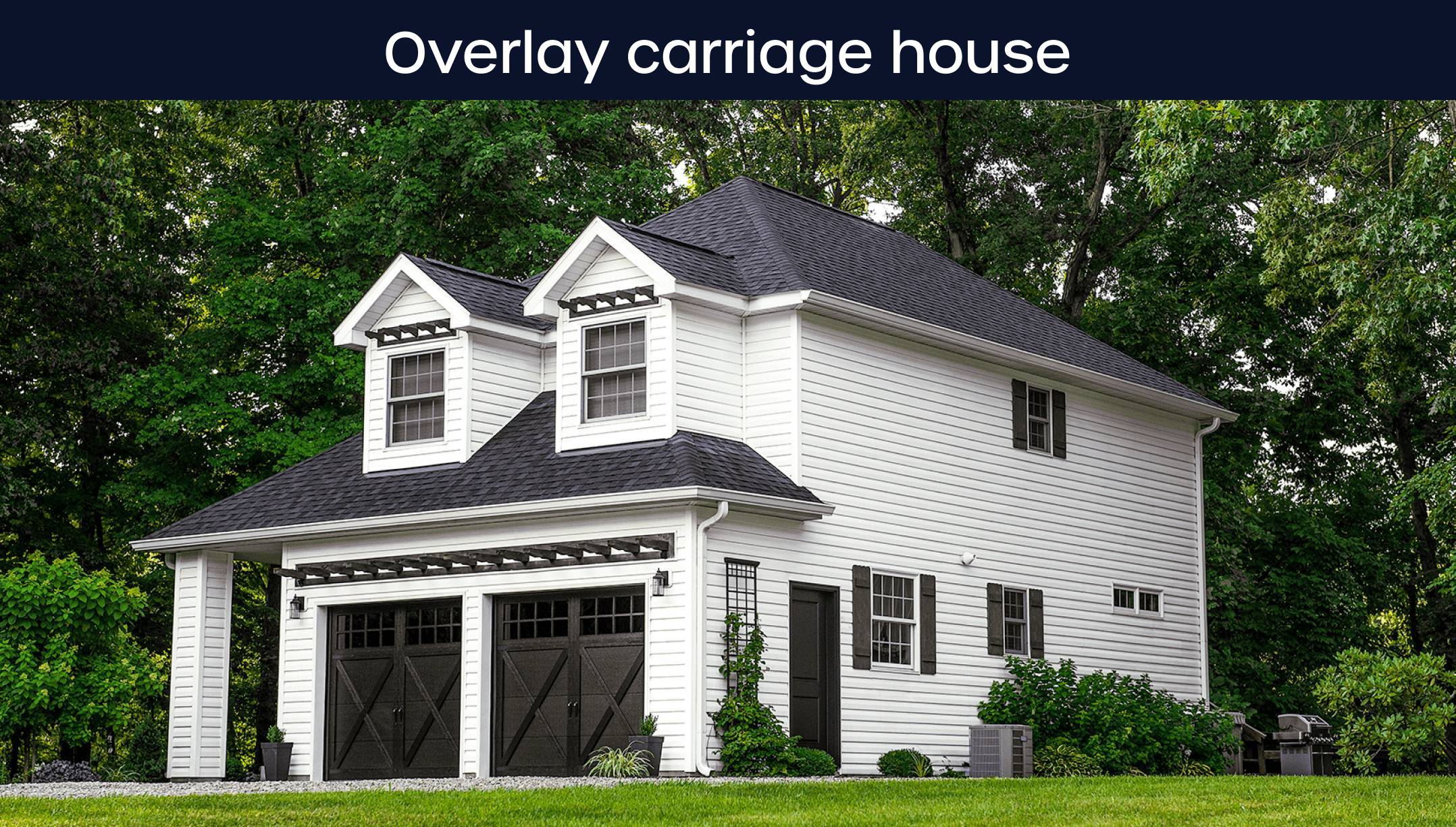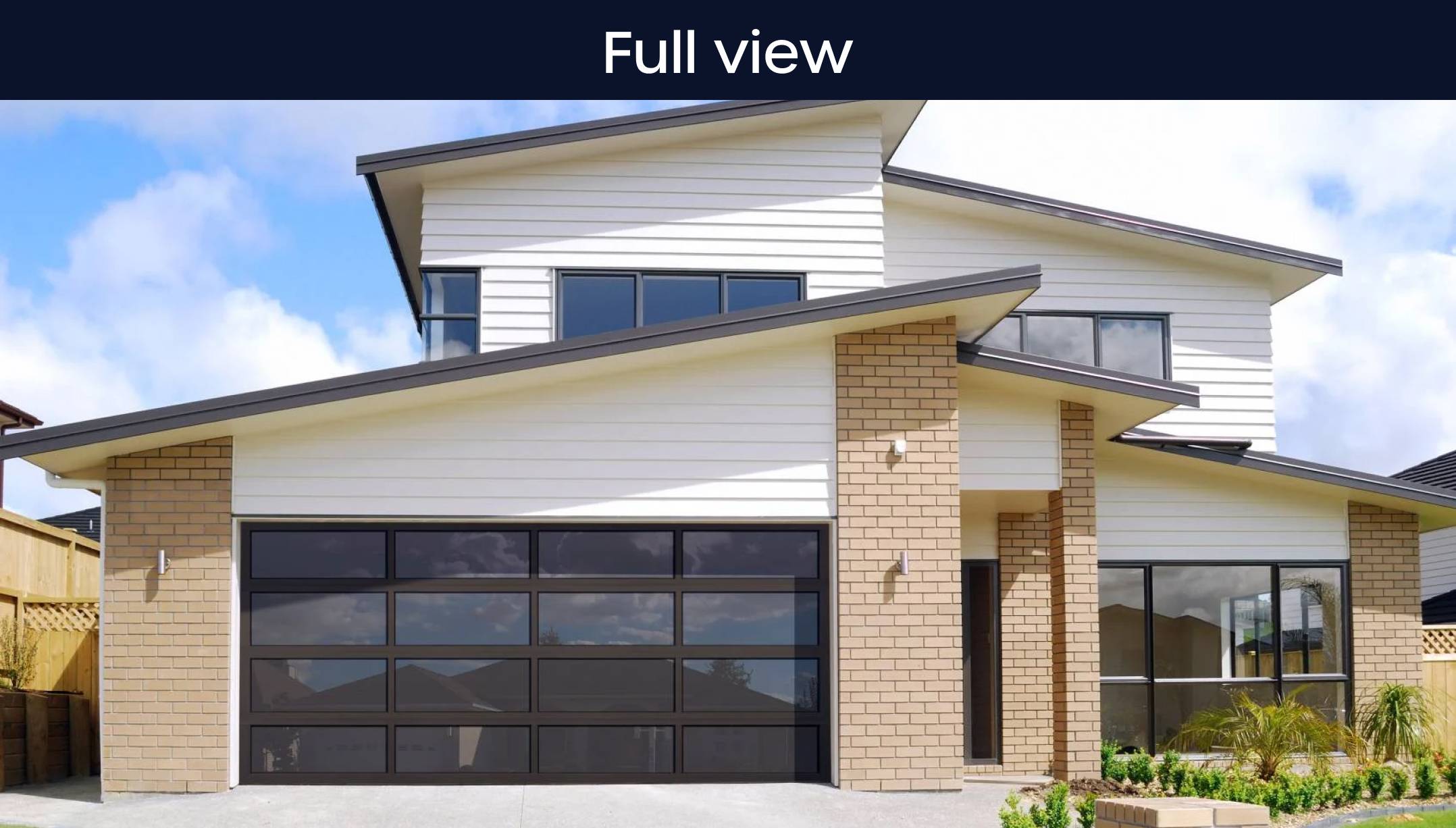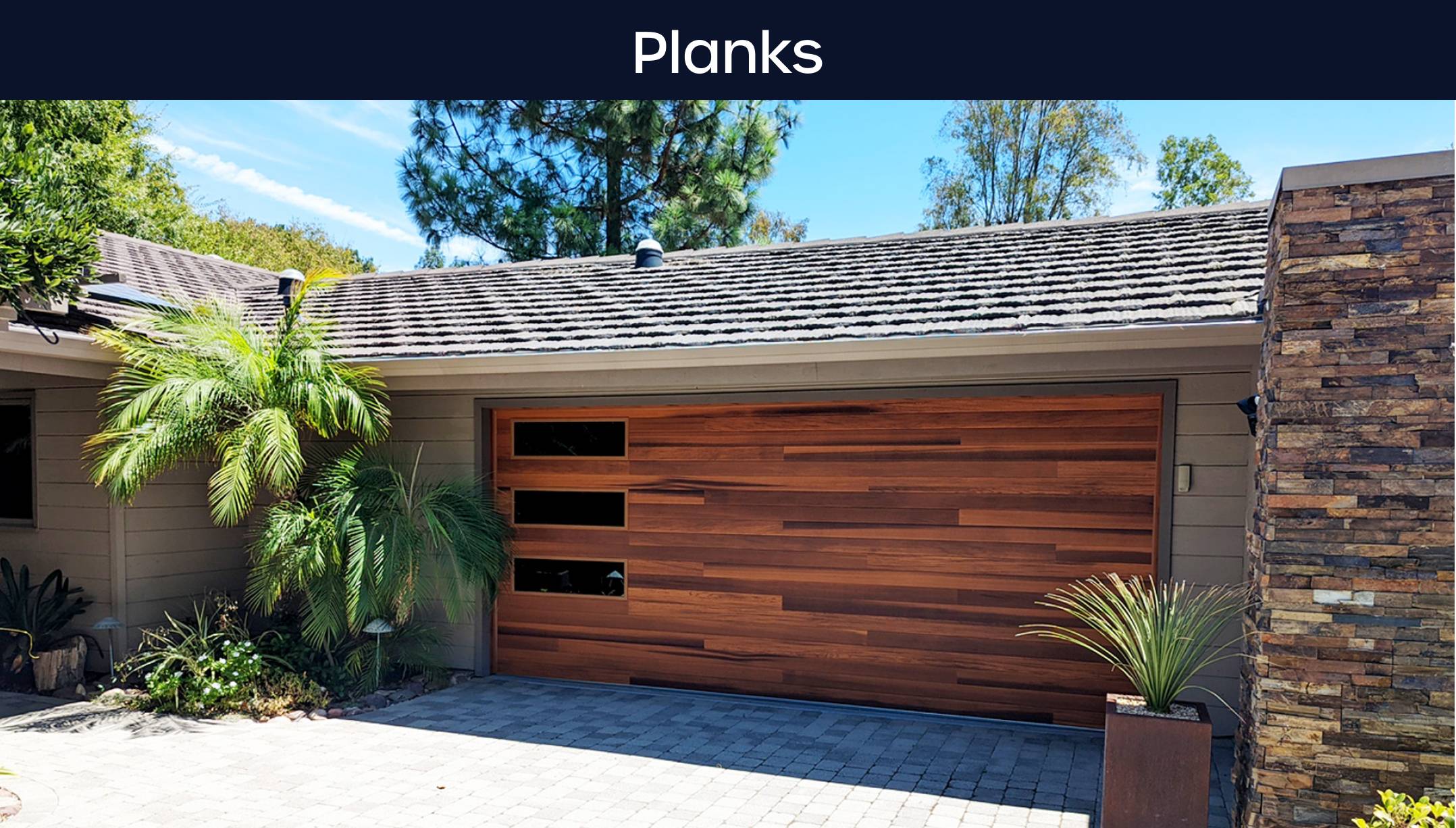Garage
doors 101:
the complete garage door buyers guide
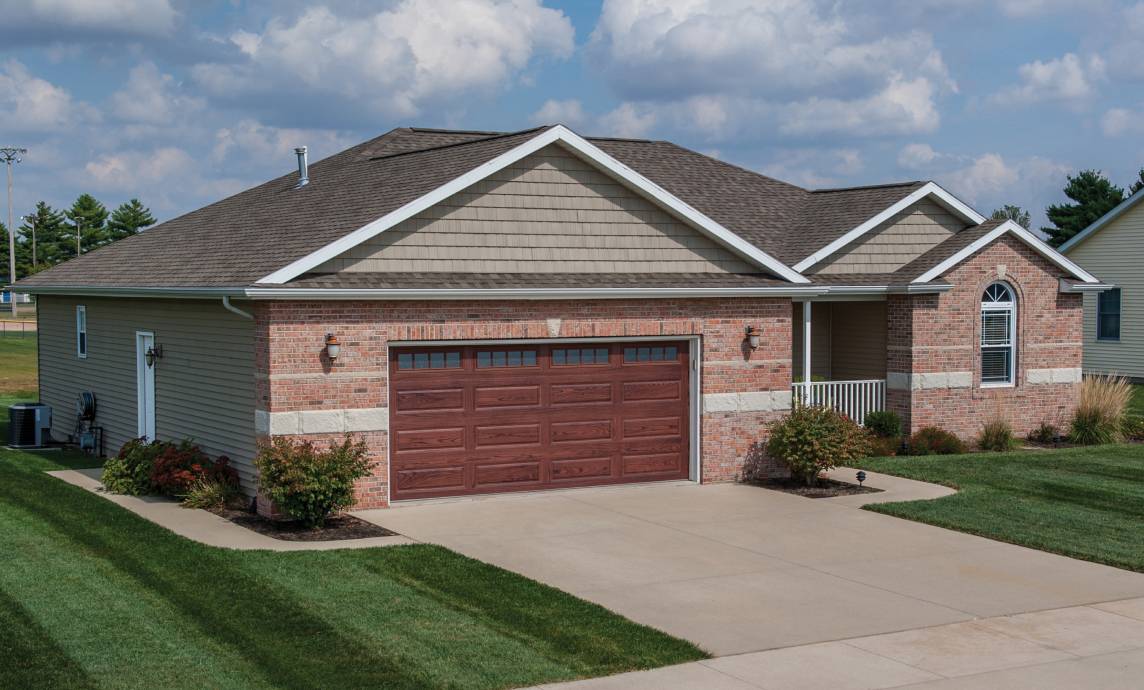

Contents

Buying garage doors
A garage door is a once-in-a-lifetime investment that lasts for decades. As exciting as choosing your own garage door can be, we know that can be a little daunting. It’s important to take your time, assess your options, and make sure you’re comfortable you have the information you need to make an informed decision.
In our residential garage door buyers guide, we’ll take you through the important things to think about before making a purchase. From the fun parts, like color and style, to more practical considerations, like insulation and security, we’ve got you covered.
Is it worth it?
Increase the value of your home
- Garage door replacement has an average Return on Investment of 102.7%.
- When buying a home, 80% of buyers consider the garage as a decision influencer.
- 70% of realtors agree that a new garage door helps sell a home faster.
Quality where it counts
- On average, you open/close your garage door 1,500 times per year.
- Garage doors take up 30% of the average home’s exterior.
Additional cost savings
- An insulated garage can help homeowners save up to 20% on annual heating and cooling costs.
Your door’s aesthetic
One of the toughest parts of the process is deciding which garage door to go for. There are so many options and customizable elements that allow you to put your own stamp on it that it can be difficult to narrow your choices down. Once you've chosen, though, you can sit back and watch experts install your perfect door!
Find your style
Choose a residential garage door that suits your personal taste and the architectural style of your home. The door is likely to be part of your house for more than twenty years, so pick something you can see yourself being happy with for the long haul. Or, if you’re buying a new door to help sell your home, pick one that’s going to appeal to potential new owners – perhaps something more neutral than you’d pick yourself.
There are hundreds of different garage door styles and designs, but we think they fit into two broad style categories.
Timeless classics and country-chic
These are great for simple, subtle injections of style. They’ll look fresh and give your home’s exterior an effortless lift.
Top tip:
Match your door to your home’s architectural heritage. Timeless classic garage doors are perfect for ranch, Cape Cod, and craftsman home styles. Modern doors are perfect for mid-century modern, contemporary, and industrial home styles.
Modern marvels
Great if you’re looking for a sleek, crisp, and minimalist design. Modern residential garage doors can make a statement or blend beautifully into your home’s exterior.
Pick a color
Look out for brands that provide plenty of garage door color options like our as standard to give you enough choice. Some also offer artificial woodtones as part of their main collection for an alternative to solid color like our black garage doors. These imitate popular types of wood and, when done well, look extremely realistic.
If you’re looking for something more unique, some brands offer custom colors. Just make sure you ask what the cost implication is as custom colors are often more expensive.
Top tip:
If your garage faces south, light, neutral, earthy tones will last longer than bright colors that are more susceptible to fading in the sun.
Need help finding your perfect color match? Ask yourself these questions:
What’s the primary color of my house?
There are two options you can go for here. You can either pick a garage door color that contrasts with the primary color of your home or matches it. We’d recommend going for a contrast unless you’re looking for a monochromatic effect. Try not to blend warm and cool tones.
Do I want my garage door and front door to match?
We’d recommend matching your residential garage door to your front door so the two work in harmony. If your garage is far away from your front door, not visible from your home’s frontage, or you love to experiment with color, go ahead and mismatch them!
Can I see the color in different lights?
Choosing which color is right for you can be tricky, especially if you’re browsing online. It’s always better to see it in print on a sample or in person on a door because all digital screens are slightly different and don’t show colors consistently.
But, if you’re just browsing for ideas, online is a good place to start. Look at product listings as a starting point, then product reviews with customer photos and on social media – that way, you can see the doors on a variety of homes in different lights and times of year.
Then, when you’re ready, request color samples or go to a showroom to look around. It’s unlikely a showroom will have all the possible colors available to see in-store, but you can get a feel for the tones you do and don’t like. And, once you have some samples, you can hold them up to your home’s exterior in different lights and decide which you like best.
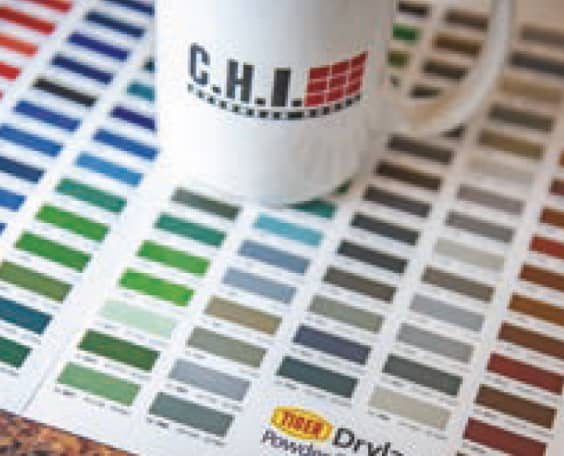
Free Color Samples
Choose up to three colors from our collection. Then, we’ll mail samples to you free of charge.
Look at glass and hardware options
Decide if you’d like windows in your residential garage door. Think about how you’re going to use the garage, what you’re going to keep in it, how overlooked or close to a sidewalk you are, and if you’d like a source of natural light. If you go for windows, think about how many you’d like, what size and shape you prefer, and what kind of glass suits your taste. Usually, you’ll have a choice of glass lengths, straight-edged and curved shapes, and plenty of glass types like tinted, frosted, and glue chip to obscure and distort what’s visible from outside.
When it comes to hardware, how much is on show depends on which door style you choose, but it’s a good idea to match it with your front door so it complements your existing aesthetic.
Decide how you want your door to open
There are a few different options for how your door will open. What you choose is up to your personal preference, available space, and angle of your driveway.
Sectional
Horizontal door panels that move and stack vertically.
Canopy
Up and over door that forms a canopy when opened.
Retractable
Up and over door that slots back fully into the garage.
Swing
Doors that are hinged at the side and open outwards.
Roller
A set of metal slats form a roll as the door opens.
Many door types also allow for electric opening. If you’d prefer automatic operation rather than manual, talk to a dealer about your opener options.
Practical considerations
Choose a construction material
Garage doors are generally made from:
- Steel
- Wood
- Fiberglass
- Aluminum
These garage door materials all have pros and cons. For example, wood is a great natural insulator, but warps in hot climates. Steel is strong and durable, but doesn’t have natural insulating properties. Choose your material based on budget, climate, and how much maintenance you want to take on.
Top tip:
Wood is a wonderful material for a garage door, but it requires more maintenance than other materials.
Consider insulation and windload
If your garage falls into one or more of the categories below, we think it’s best to go for an insulated garage door.
- Attached to your house
- Used as a recreational space instead of storage space
- Used to store items that might be damaged by large temperature changes
- Used to operate noisy machinery or play musical instruments in built-up areas
- In a climate that’s not mild year-round
Doors are typically insulated with polystyrene or polyurethane, and the door’s ability to resist heat loss is measured with R-value. The higher the R-value on garage doors, the more insulating they’ll be. But that doesn’t mean you need to go for the highest R-value to get a reliable level of insulation. For example, a lower value will work well if you’ve got a detached garage or live in a climate that doesn’t experience extreme seasonal temperature changes.
If you live in an area that experiences high winds and hurricanes, like Florida or Texas, your garage door will need to adhere to regional building regulations to prove it can handle certain windloads. Always check this with your garage door dealer to ensure you’re getting the best door for your home and location. If you buy a door that doesn’t meet regulations, it could cause the door to fail during bad weather, which could cause further damage to your home.
Measure your doorway
While some doorways are standard sizes, many will need a bespoke door. To get a more accurate quote, it’s a good idea to measure your doorway. Don’t worry – a door expert should come to do a final measurement before you make a purchase, but your initial measurements are a useful starting point.
To take your measurements, measure the width and height of your doorway from the edge of the doorframe. Add an inch or two to your width measurement as you need a half-inch or inch overlap on each side to ensure a good seal when closed. It’s also useful to measure the head height (the measurement between the top of the doorway and the ceiling) as this will help determine the kinds of tracks you can have.
Security
All residential garage doors offer some protection from criminal activity, but it’s worth considering security when designing and using your door. Here are some things to keep in mind:
- Consider adding an alarm to your garage if you’re storing precious items in it
- If you opt for an electric opener with a remote control, don’t keep the remote in your glovebox. Instead, bring it inside the house after every use
- If you’d like windows in your garage door, opt for tinted or frosted glass to obscure the view from outside
Where to buy garage doors
It’s useful to shop around before making any decisions. Large general merchandisers and hardware stores will stock a good variety of door brands but will usually only sell you the door, with installation provided by a different company. Smaller, local dealers also stock a good variety of doors and will often install the door for you. They’re also garage door specialists, so if you have questions you want to ask or options you’d like to explore, going to a local dealer is more likely to get you the information you need.
Your garage door buyers guide checklist
Here are the top questions to ask during your buying journey:
- Which door materials best suit my location and climate?
- Do your garage doors meet local regulations regarding windload?
- What kind of insulation, if any, will work for me?
- What track and opening options do you offer?
- What’s included in your service? E.g., installation, aftercare
- Do your doors come with a guarantee?
- How long do your doors take to arrive?
We hope these, along with the information in this guide, help you to find your perfect garage door.
About C.H.I. Overhead Doors
We're specialists in manufacturing and installing premium-quality garage doors for homeowners. All our doors are designed to last the test of time and made right here in the USA. With doors to suit every style and budget, and local dealers on-hand to offer personalized support, it's never been easier to start your home's next chapter.

